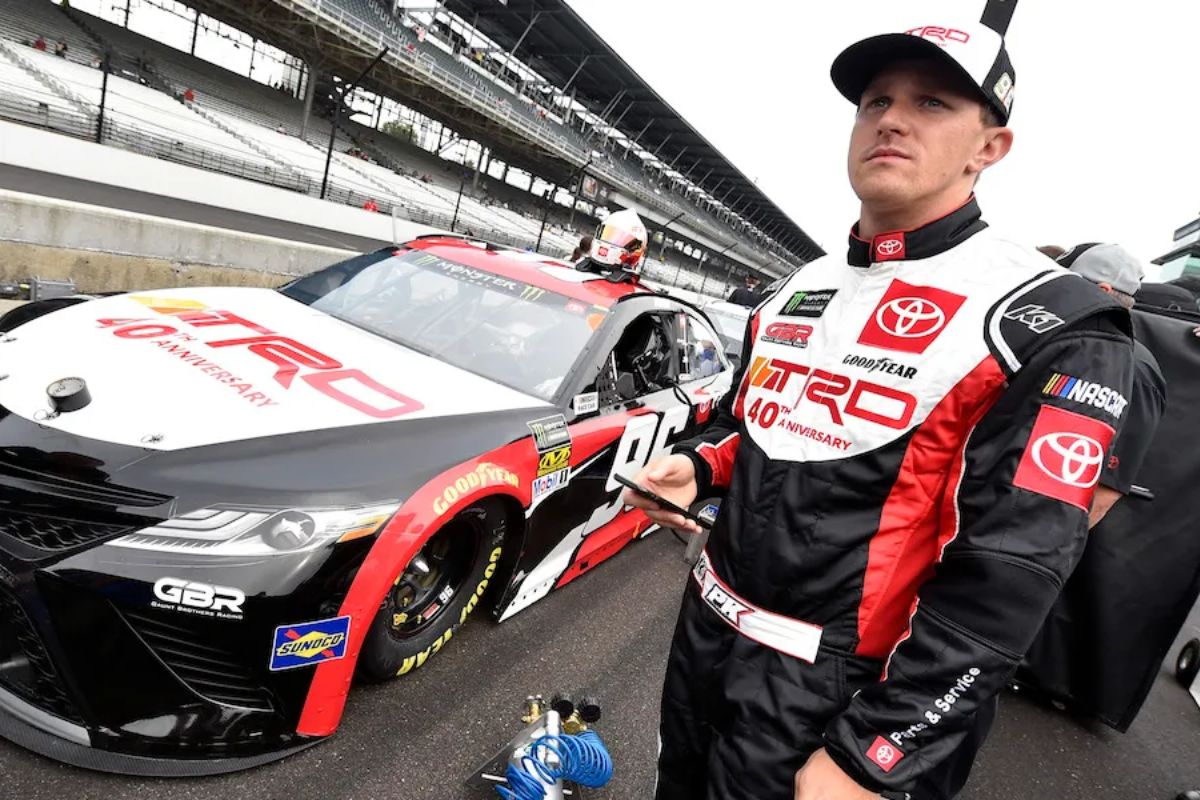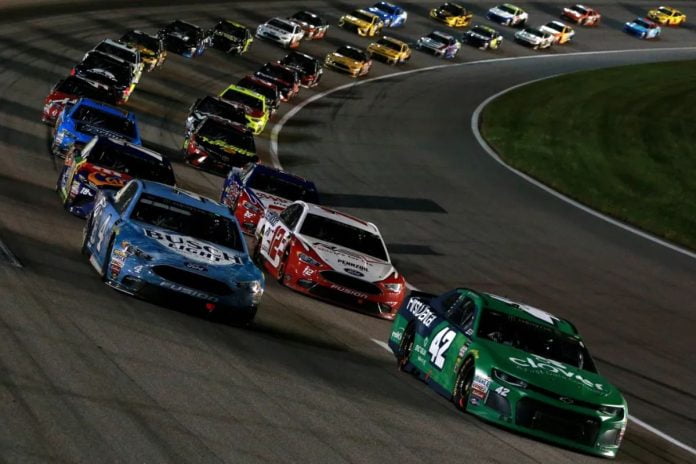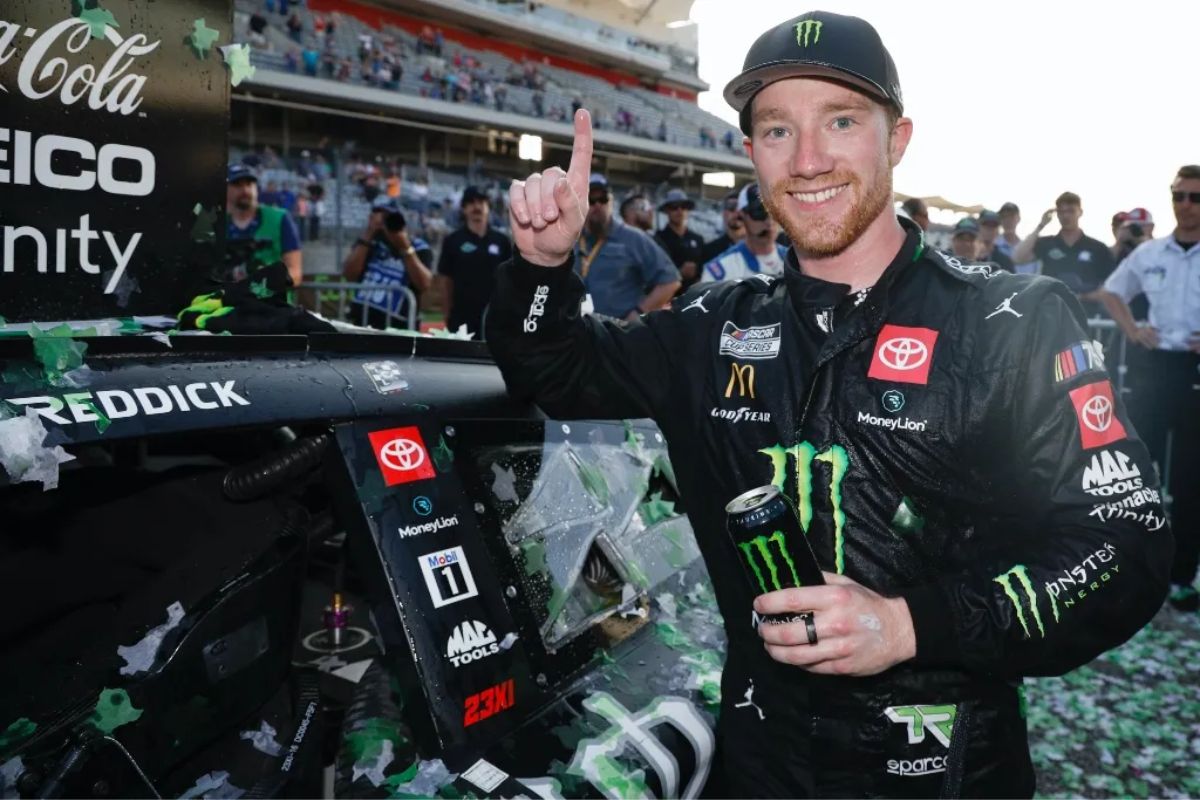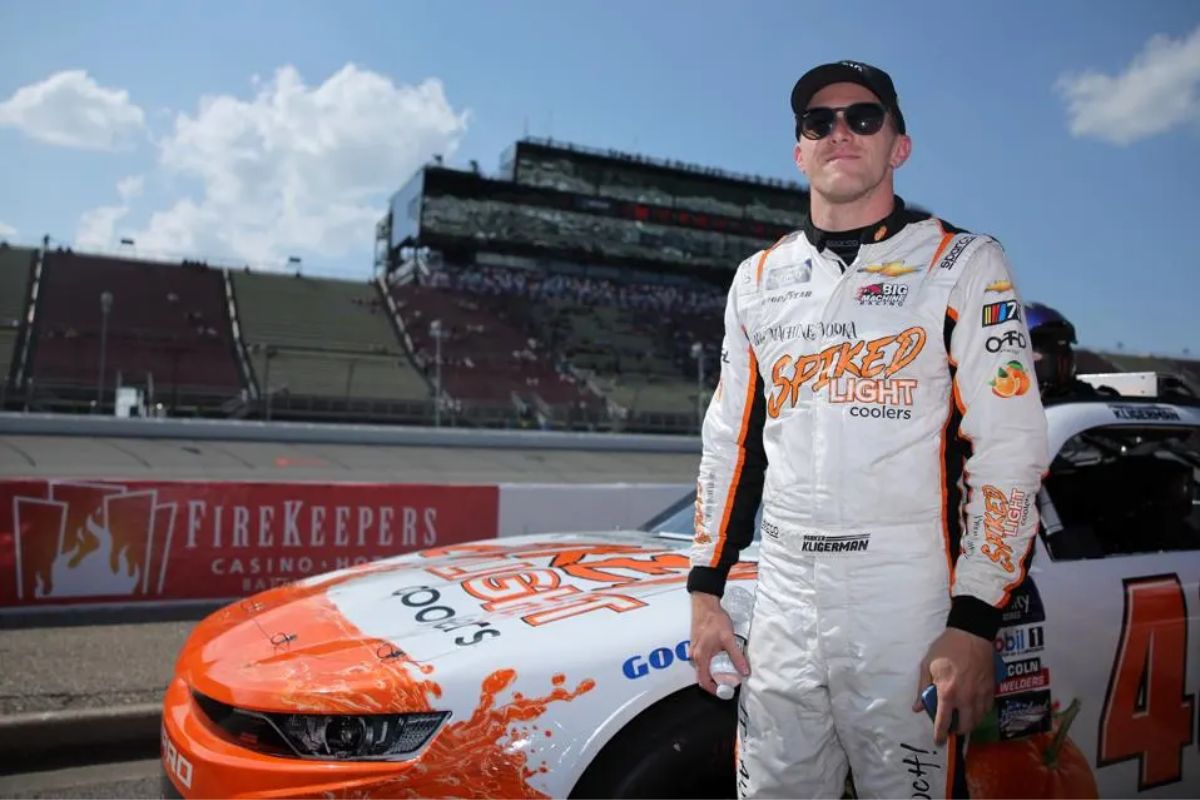NASCAR’s Nicotine Trend: The recent disclosure by Parker Kligerman about the pervasive use of nicotine among NASCAR drivers has opened a controversial chapter in the sport’s storied legacy. As drivers seek every available edge, nicotine’s role as a potential cognitive booster brings forth not only ethical questions but also concerns about health and performance standards within professional racing. Kligerman’s candid account, compare to his personal skepticism with the trend’s popularity, underlines a critical need for a broader discussion on substance use in competitions.
Key Takeaways
- Parker Kligerman tested nicotine’s effectiveness in racing simulations, highlighting variability in its impact on focus and performance.
- Nicotine is increasingly used by NASCAR drivers to enhance mental focus, reaction times, and stress management.
- Kligerman’s experience reveals mixed results and physical discomfort, raising questions about nicotine’s suitability as a performance enhancer.
- The trend points to a broader normalization of nicotine use in sports environments, potentially influencing younger athletes.
NASCAR’s Modern Nicotine Connection
Despite the absence of visible smoke, modern NASCAR drivers, like Tyler Reddick, continue to utilize nicotine, subtly maintaining a decades-old tradition for improved concentration during races. This practice, though less conspicuous than in the days of Dick Trickle, underscores a persistent belief in nicotine’s performance-boosting effects, specifically regarding mental focus and stress reduction. The modern adaptation of this tradition reflects not only changes in societal attitudes towards smoking but also advancements in how athletes manage and optimize their performance under extreme conditions.
The shift from visible smoking to more discreet forms of nicotine intake, such as gums, patches, or vaping, suggests a distinct understanding of the health implications associated with smoking and the regulatory landscape governing sports and sponsorship. NASCAR, like many other sports associations, has had to navigate the evolving public health dialogue surrounding tobacco and nicotine products. This has led to a scenario where drivers and their teams must balance traditional practices with contemporary health standards and public expectations.
Nicotine’s role in this scenario is not merely about tradition but also about its neurobiological impact on the human body. Research suggests that nicotine can boost alertness, reaction time, and the ability to concentrate over prolonged periods, which are critical in a sport where split-second decisions can determine the outcome of a race.
Reddick’s Nicotine Use and Effect on Focus
Tyler Reddick’s use of Zyn nicotine pouches during races has sparked discussions about its potential to enhance focus and decision-making under high-pressure conditions. As observed in the recent Talladega race, Reddick’s performance was remarkably sharp, driving through a chaotic field to secure a win. This incident has led to a broader conversation about the role of nicotine in improving cognitive functions during intense sporting events.
“If anybody saw the show and saw some in-car footage, you could see that Tyler (Reddick) was packing a Zyn in his side pocket, and all of this conversation is to say that Tyler was clearly focused, and locked in with the bigger picture. He was driving the car from the blimp, he could see everything.”-Cassil
Nicotine, long known for its stimulating properties, seems to offer certain advantages in sports where mental clarity and quick decision-making are critical. According to the anecdote shared by Landon Cassill on the Money Lap podcast, Reddick’s use of nicotine pouches might have contributed to his heightened state of awareness and strategic thinking during the race. Parker Kligerman’s commentary further shows the contemporary adaptation of nicotine use in NASCAR, shifting from traditional smoking to discreet, smokeless options like Zyn.
- Enhanced Concentration: Nicotine may help sharpen focus, vital for maneuvering through complex race scenarios.
- Stress Regulation: It might aid in managing stress levels, helping drivers remain calm and collected.
- Improved Reaction Time: Potential quicker reflex responses, advantageous during sudden changes on the track.
Nicotine Trend Among NASCAR Drivers
The growing use of nicotine among NASCAR drivers as a focus-enhancing tool reflects a significant shift in the sport’s approach to maintaining concentration and managing stress during races. As reported by insiders and veterans in the industry, this trend underscores a broader acceptance of nicotine, not merely as a recreational substance, but as a legitimate aid in high-stakes environments.
This phenomenon is not isolated but rather indicative of a wider acceptance within the racing community, where mental acuity and sharp focus are indispensable. Nicotine, in forms such as Zyns, is reportedly used by numerous drivers who believe in its benefits comparable to those of caffeine. This comparison to caffeine is pivotal, as it repositions nicotine from a frowned-upon substance to a more neutral—perhaps even beneficial—tool in the athlete’s arsenal.
“So this is a trend happening. For all our listeners out there, there are numerous NASCAR drivers, I’m not gonna name names, I don’t want them out there. But there are numerous drivers that are racing with Zyns in their mouth. And you know, the thought process is, I do know, there is a scientific backing to the fact that nicotine can be a focus helper and sort of like stimulant, sort of just like caffeine, it’s no different, and it can help you focus and that sort of thing.”-Kligerman
Kligerman’s Personal Experience with Nicotine
Reflecting on his personal trials with nicotine, Parker Kligerman shared his experiences during simulator sessions, revealing mixed feelings about its effectiveness in improving focus. Kligerman’s experiment with nicotine pouches in the controlled environment of a simulator was driven by curiosity, influenced by the increasing use of such products among his peers in NASCAR.
Kligerman noted that unlike some of his contemporaries, he did not perceive a significant boost in focus or performance. Instead, his trial left him with a dry throat and a sense of uncertainty about the tangible benefits of nicotine use in his racing practice. This subjective experience highlights the variability in how individuals react to nicotine, suggesting that its reputed benefits in improving concentration might not be universal.

“It’s become so prevalent that last year, I tried it in the simulator…(…)..Well, I never thought about it in the race car, but seeing all this happen and seeing all these drivers utilising it, I thought i’ll try it in the simulator. I didn’t think I felt anything, I was like, ‘I don’t know! My throat’s a little dry and I feel like when I have a Zyn, sometimes it can keep you up’.”-Kligerman
- Lack of Improved Focus: Despite expectations, Kligerman did not experience the heightened concentration that some athletes report.
- Physical Discomfort: The use of nicotine resulted in a dry throat, which could potentially distract from performance rather than aid it.
- Psychological Ambiguity: The absence of clear benefits left him questioning the utility of nicotine use in racing contexts.
“But I will say, long drives, like if I’m on a long drive, and I’m getting a little tired and weary, I’ll have a Zyn and boom, I’m back. Bam, I feel like I can drive the rest of the way. Like after Bristol last year, I did that exact thing. I literally was tired. I was like, ‘I’m not gonna do another energy drink’. And I stopped, got Zyns, put one of those in, and bam, drove all the way home, no problem, felt super awake.”-Kligerman
S2E18: Are Nicotine Pouches the biggest secret in NASCAR?
Hosted By: @landoncassill & @pkligermanTimestamps:
00:00 – Intro and Landon's Career Numbers
03:17 – PR Lap and Show Topics
04:20 – Dedicating Segment to @NASCAR_Xfinity
08:45 – Listener Reviews
12:25 – Aryton Senna… pic.twitter.com/vZX4s1yUez— The Money Lap (@themoneylap) April 25, 2024
Discussion and Implications
Analyzing Kligerman’s diverse responses to nicotine use raises important questions about its suitability and effectiveness as a performance enhancer in professional racing. While Kligerman noted minimal impact in a simulated environment, his experience during a long drive suggests a perceived increase in alertness and endurance.
The use of such substances to combat fatigue could indicate underlying issues in the sport’s scheduling and physical demands on drivers. While nicotine is legally accessible and widely used, its adoption as a tool for improved performance raises ethical and health-related concerns.
News in Brief: NASCAR’s Nicotine Trend
The revelation of nicotine use among NASCAR drivers, as highlighted by Parker Kligerman’s experiences, necessitates a thorough evaluation of its impact on performance and safety in professional sports. This trend shows the need for in-depth research on the effects of nicotine and robust regulatory frameworks to guarantee athlete welfare. As the sporting world struggles with these complexities, the priority remains on maintaining the integrity of sports and safeguarding the health of its participants.
Our Reader’s Queries
Q. Who is Parker Kligerman driving for?
A. Competing full-time in the NASCAR Xfinity Series, Parker Kligerman drives the No. 48 Chevrolet Camaro for Big Machine Racing. He previously served as a development driver for Team Penske. Since 2015, Kligerman has been employed by NBC as a TV Analyst and pit reporter.
ALSO READ: Parker Kligerman Reveals Truth Behind COTA Confrontation: Exclusive Insights!




